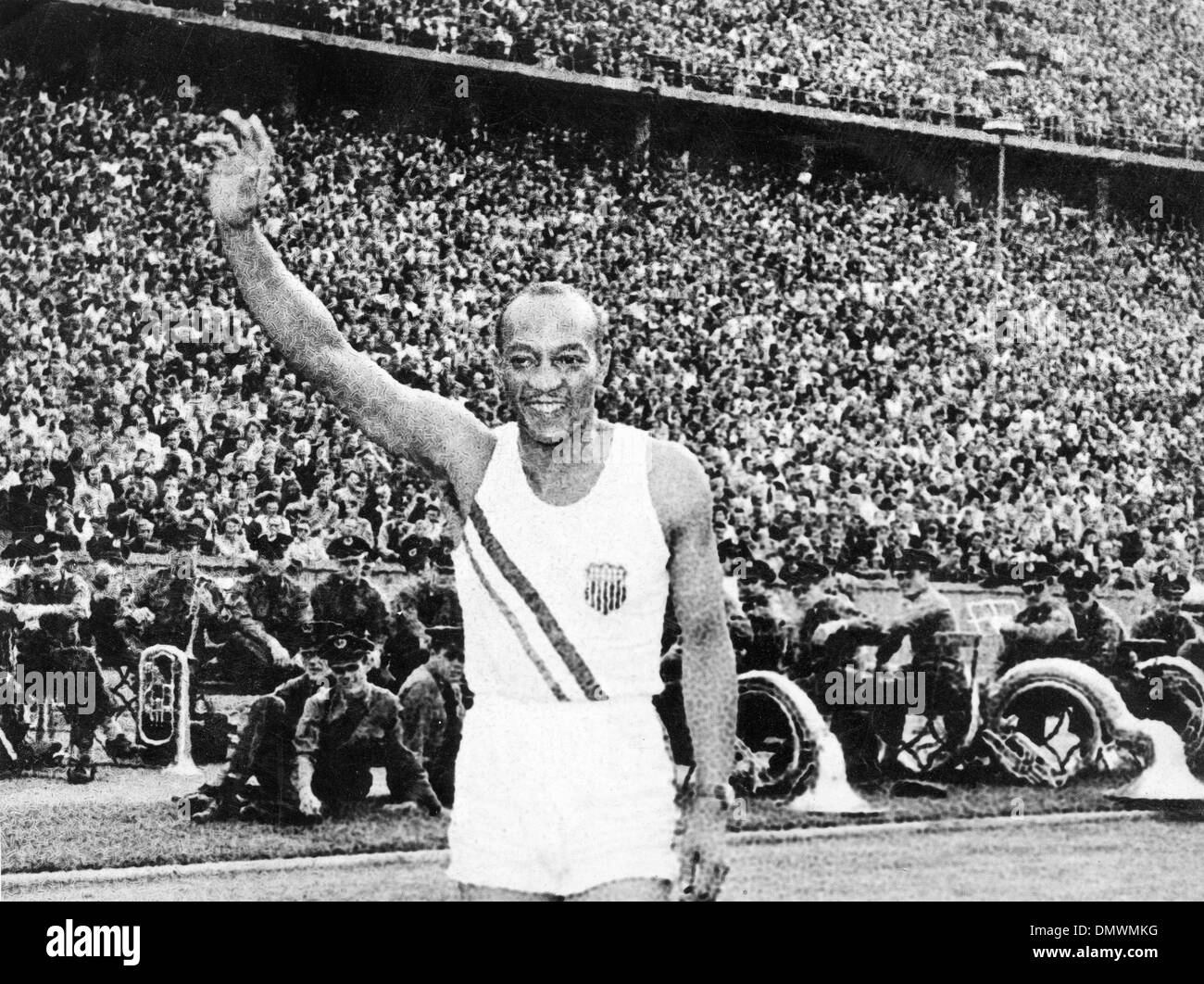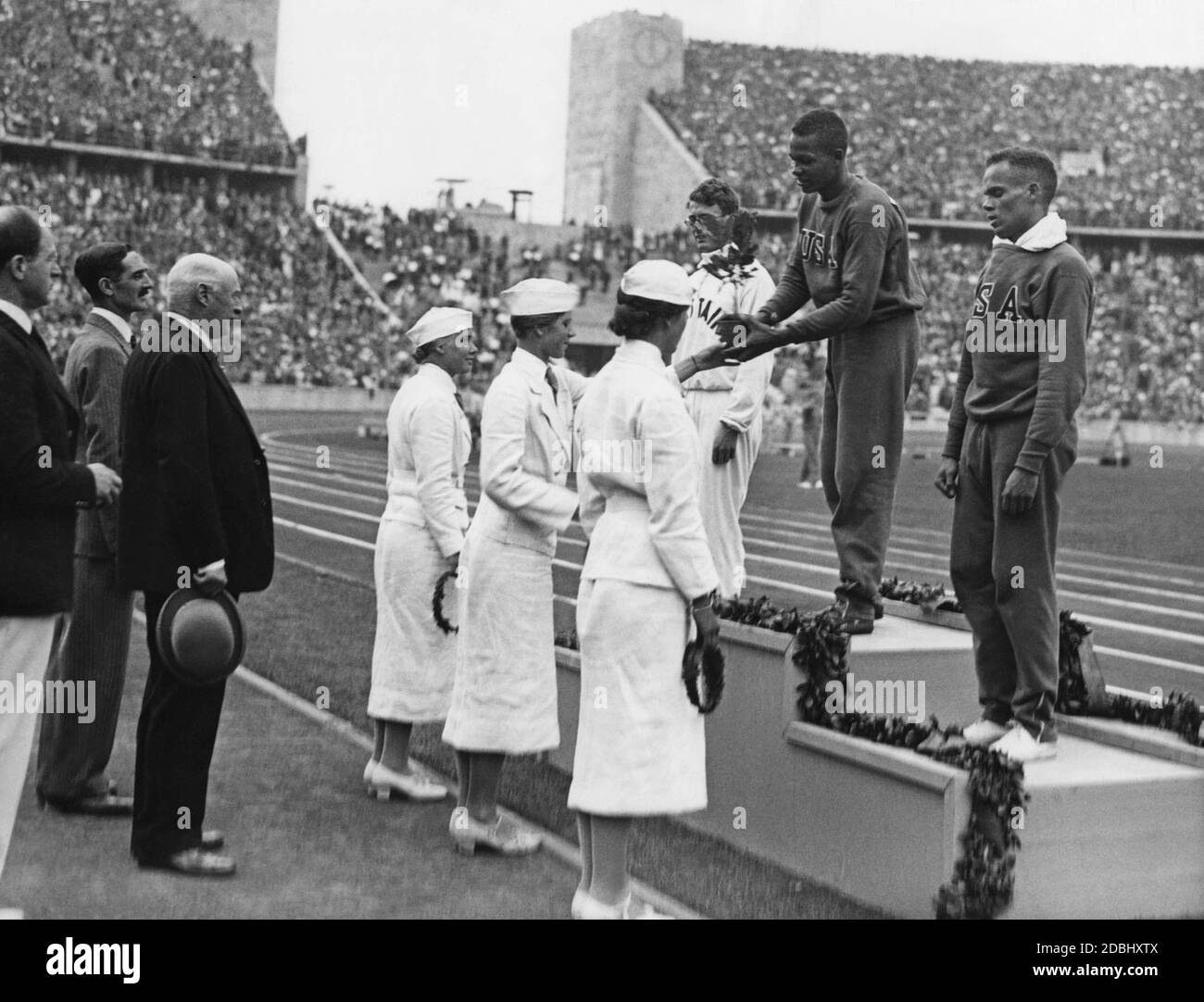
When we consider the realm of **legendary athletes**, one name that undeniably rises to the forefront is that of **Jesse Owens**. His remarkable journey transcends mere athletic achievements and medals; it embodies a powerful narrative of breaking down barriers and defying societal norms. Owens emerged as a beacon of hope and resilience during a time when racial discrimination was rampant in the United States and around the world. His extraordinary performances at the 1936 Berlin Olympics not only showcased his unparalleled talent but also sent a resounding message against the prevailing ideologies of the time. So, settle in and prepare to explore the incredible life and legacy of this extraordinary individual, whose impact continues to inspire generations.
Early Life: Roots of a Champion
:max_bytes(150000):strip_icc()/GettyImages-56928280-cec191908c9d483bb2d5386936b59c48.jpg)
Born to Overcome
Jesse Owens entered the world on **September 12, 1913**, in the small town of **Oakville, Alabama**. He was the youngest of ten children born to a family of sharecroppers, a circumstance that came with its own set of challenges and hardships. Imagine the daily struggles they endured, working tirelessly in the fields just to make ends meet. Jesse’s grandparents had been enslaved, and their legacy of resilience and perseverance was woven into the fabric of his upbringing. As a young boy, Jesse often found himself picking cotton alongside his family, but deep within him burned a desire to rise above the limitations of his environment and chase dreams that reached far beyond the fields.
A Move to Cleveland
At the tender age of nine, Jesse’s family made a significant move to **Cleveland, Ohio**, a transition that would prove to be a turning point in his life. In this new city, he enrolled in a different school where a simple yet impactful incident occurred. A teacher, mishearing his name, began calling him “**Jesse**” instead of “**J.C.**” This seemingly minor error would eventually become a name that resonated with greatness and achievement. It was in Cleveland that Jesse began to discover his extraordinary talent for running, setting the stage for a future that would not only change his life but also leave an indelible mark on the world of sports and beyond.
Discovering Athletic Talent

High School Stardom
Jesse Owens embarked on his athletic journey at the tender age of 13, quickly establishing himself as a remarkable talent in the world of track and field. His high school years were nothing short of extraordinary, as he emerged as a dominant force in competitive running. At the prestigious **1933 National Interscholastic Championships** held in Chicago, Owens showcased his exceptional abilities by clinching victory in three different events. This impressive feat not only highlighted his remarkable speed and agility but also set the stage for a burgeoning career that would soon capture the attention of the nation. It was a pivotal moment that marked the beginning of his ascent to stardom, as he made a name for himself in the annals of high school athletics.
Breaking Records at Ohio State
As Jesse Owens continued his journey at **Ohio State University**, he experienced a day that would be etched in the history books forever. On **May 25, 1935**, he achieved an unprecedented level of athletic excellence by equaling the world record for the **100-yard dash** while simultaneously breaking records in the **220-yard dash**, the **220-yard low hurdles**, and the **long jump**. This remarkable achievement of breaking three world records in a single day is akin to a sports miracle—imagine the thrill of hitting a home run, scoring a touchdown, and sinking a three-pointer all within the same game! Owens’ extraordinary performance not only solidified his status as one of the greatest athletes of his time but also inspired countless individuals to pursue their dreams in the realm of sports.
The 1936 Berlin Olympics: A Stage for Greatness

Defying Expectations
The **1936 Berlin Olympics** were intended to be a grand spectacle that would demonstrate the supposed superiority of the Aryan race, a key tenet of Nazi ideology. However, American athlete Jesse Owens had different intentions and goals in mind. He astoundingly clinched **four gold medals** during the games, triumphing in the **100-meter run**, **200-meter run**, **long jump**, and the **4 × 100-meter relay**. Each of his victories served as a powerful rebuttal to the racist beliefs that permeated society at the time, showcasing not only his incredible athleticism but also challenging the very foundations of racial discrimination and prejudice that the Nazis sought to promote.
The Infamous “Snub” Incident
Among the many memorable moments from the 1936 Olympics, one of the most discussed was the alleged **snub** by Adolf Hitler towards Jesse Owens. While it is indeed accurate that Hitler did not extend his hand to congratulate Owens, it is essential to delve deeper into the circumstances surrounding this incident. By the time Owens secured his first gold medal, Hitler had already made the decision to refrain from publicly congratulating any athletes, regardless of their nationality or achievements. This context is often overlooked, leading to the perpetuation of the myth surrounding the so-called snub, which was further amplified by sensationalist media coverage of the event. The narrative surrounding this incident has since become a significant part of Olympic history, illustrating the complex interplay between sports, politics, and race during a tumultuous period in world history.
Life After the Olympics: Struggles and Triumphs

Finding His Path
After the Olympics, Owens faced significant challenges. Despite his fame, he struggled to find work. He even raced against horses for money! Can you imagine going from Olympic champion to racing horses? It’s a testament to his resilience.
Public Relations and Advocacy
In the 1950s, Owens turned his fame into a career in **public relations**. He traveled across the country, making paid appearances and advocating for youth sports. His journey was a reminder that success isn’t just about medals; it’s about using your platform to inspire others.
Legacy: More Than Just an Athlete

A Symbol of Hope
Owens became a symbol of hope and perseverance. He engaged in boys’ guidance activities and made goodwill visits to countries like **India** and **East Asia** for the U.S. Department of State. His impact went beyond the track; he was a beacon of light for many.
Honors and Recognition
In **1976**, Owens received the **Presidential Medal of Freedom**, and in **1990**, he was posthumously awarded the **Congressional Gold Medal**. These honors were a testament to his contributions, not just in sports but in the fight against racial injustice.
Personal Life: The Man Behind the Legend

Family and Values
Jesse Owens married **Minnie Ruth Solomon** in 1935, and they had three daughters. He instilled values of hard work and determination in his children, ensuring that his legacy lived on through them.
Health Struggles and Passing
Despite his incredible achievements, Owens struggled with health issues later in life. A heavy smoker, he was diagnosed with **lung cancer** and passed away on **March 31, 1980**, in **Tucson, Arizona**. He was 66 years old. His death was a significant loss, but his legacy continues to inspire.

Jesse Owens was more than just an athlete; he was a pioneer who broke barriers and challenged societal norms. His story is a powerful reminder that with determination and resilience, we can overcome any obstacle. So, the next time you think of **Olympic greatness**, remember Jesse Owens—not just for his medals, but for the impact he made on the world.
Table: Jesse Owens’ Olympic Achievements

| Event | Medal | Time/Distance |
|---|---|---|
| 100-meter run | Gold | 10.3 seconds (Olympic Record) |
| 200-meter run | Gold | 20.7 seconds (World Record) |
| Long jump | Gold | 8.06 meters (26.4 feet) |
| 4 × 100-meter relay | Gold | 39.8 seconds |

